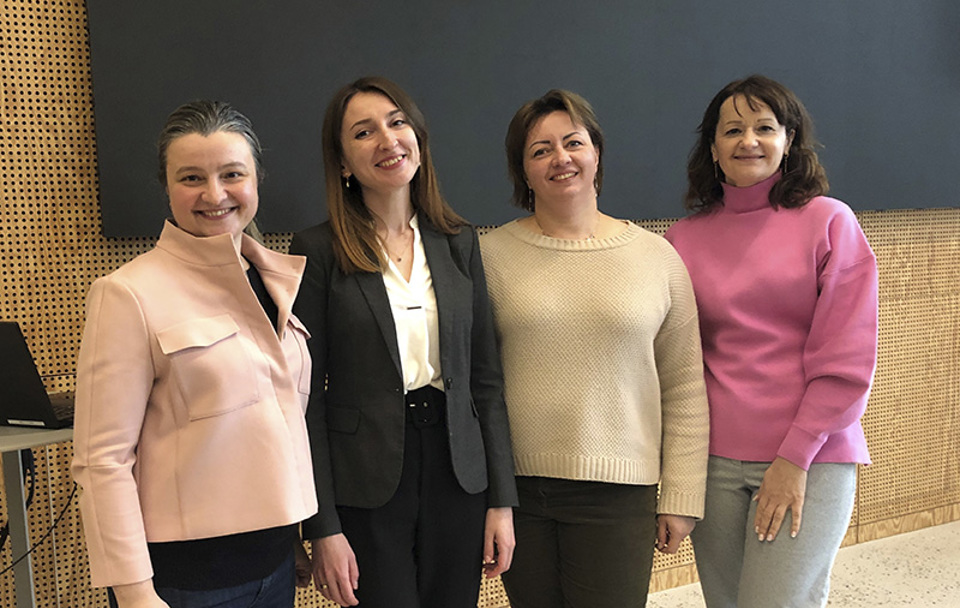Olesia Verchenko came to Denmark the day before the invasion in February 2022. She was hired as an assistant professor at AAU Business School after first volunteering at a welcome centre for Ukrainian refugees in the Aarhus area.
TV2 Østjylland interviewed her at the time. See it here (in Danish).
Olesia Verchenko comes from Kyiv where she is a professor of economics at the Kyiv School of Economics.
- The situation at my university now is that we have online teaching, but some places try to maintain in-person teaching – also on campus. But they have also had to teach in underground shelters, says Olesia Verchenko.
And the difficulty in maintaining contact with the students – despite great willpower – was illustrated by the presentation of a photo at the event at AAU Innovate. It showed a teacher standing with an iPad or laptop at a hotspot on a sidewalk where there was a reasonably working mobile connection and thus being able to complete an online lesson.
Research interest in Ukraine
The many Ukrainian refugees who have come to Denmark have also sparked interest for research at AAU. The Department of Sociology and Social Work has embarked on a research project to investigate how young Ukrainian refugees are doing in Denmark. And Nataliia Varha was hired for that. She holds a doctorate in sociology and before the war was an associate professor at Uzhhorod National University in the city of Uzhhorod which is located in southwestern Ukraine. Nataliia Varha came to Denmark in March 2022 where she worked for a time at a nursing home in the Copenhagen area. Now she can resume her research.
- My research includes conducting qualitative interviews with 15 young Ukrainians ages 15-25 about their lives as refugees in Denmark, Nataliia Varha said.
Read more about the research project here (in Danish).
Olena Semenovska is affiliated with the Department of Electronic Systems as a postdoc. Back home in Ukraine, she is an associate professor at the Igor Sikorsky Kyiv Polytechnic Institute, which is one of the oldest and largest technical universities in Ukraine with 16 faculties and numerous research centres.
One of the areas she talked about was managing online teaching.
- We want to preserve our education system and retain our students, so we use cloud solutions like Google Workspace and Zoom.
Scientific work a source of comfort and strength
Although the conditions for research and teaching at Ukrainian universities are challenging to a degree that can be difficult for us in Denmark to understand, there is also hope in trying to maintain academic life.
- In a time of war and separation from family and friends, maintaining scientific activity can become a source of comfort and spiritual strength. It helps you stay connected to reality during a difficult time and can be a way to stay connected to the rest of the world, said Olena Semenovska.
Despite the war, Ukrainian researchers are still affiliated with their universities back home and hope that it will be possible to return to a permanent life in Ukraine after the war. But they all express great gratitude for having been given the opportunity to continue an academic life in Denmark.

